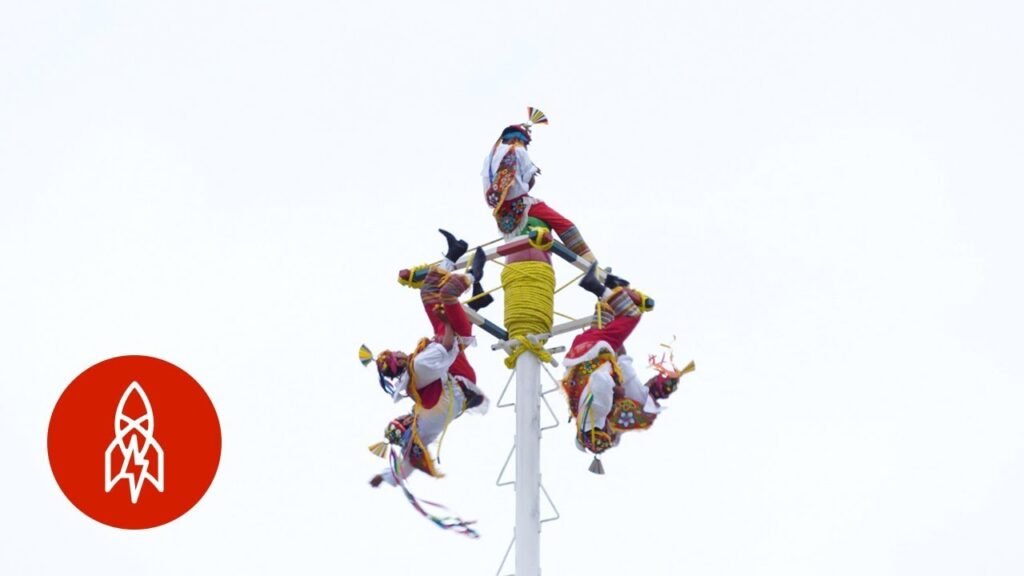The Impending Closure of Jamaica Market and Its Impact on Mother’s Day Celebrations
Mexico City’s Jamaica Market has long been an iconic destination for locals and tourists alike, bursting with vivid color and a symphony of scents. Notably, the market comes alive every year ahead of Mother’s Day, as people flock to purchase vibrant flowers to honor the matriarchs in their lives. However, the recent announcement of the market’s impending closure has cast a shadow of uncertainty over this year’s celebrations. Without the usual pomp and bustling flower stalls, many are left wondering how this beloved tradition will evolve.
The Jamaica Market, an emblem of the city’s rich culture, has been the epicenter for flower merchants for over six decades. Mother’s Day in Mexico, being a significant event, hinges on the expression of love and respect through the giving of flowers, a practice rooted deep within the societal fabric. The market’s potential closure threatens to disrupt not only commercial activities but also a cultural ritual that has been a hallmark of Mother’s Day, leaving many families pondering alternative ways to maintain the essence of the day’s celebration.
In light of this development, local vendors are grappling with a mix of emotions. There’s an air of resilience as they explore other avenues to continue their trade—temporary stalls, smaller markets, or even digitizing their businesses. Meanwhile, consumers are showing support by rallying around these vendors, acknowledging the need to adapt while clinging to the hope that the market’s closure might still be averted. The intertwining of community spirit and adaptability serves as a testament to the importance of the Jamaica Market in Mexico’s social and economic landscape.
Amidst the sense of loss, there’s also a burgeoning conversation on sustainability and the environmental impact of large markets like Jamaica. The closure prompts a dialogue on how future Mother’s Day celebrations can be both festive and environmentally conscious. This has spurred innovative ideas such as locally-sourced bouquets and eco-friendly packaging, suggesting that the legacy of Jamaica Market could live on through more sustainable practices in gifting and celebrations.
As Mother’s Day approaches, the mood amongst Mexico City’s residents is a blend of nostalgia and anticipation. Nostalgia for the past years of jubilance at the Jamaica Market, and anticipation for new traditions that will sprout from its absence. The impending closure of the market is a significant milestone, one that marks the end of an era but could possibly pave the way for the birth of new customs. Change is constant, and it seems that the spirit of Mother’s Day will continue to thrive, albeit in different, yet equally meaningful manifestations.
Exploring Alternative Flower Markets for Mother’s Day in Mexico
In Mexico, Mother’s Day, or «Día de las Madres,» is a heartfelt celebration honoring the cornerstone of many families. Traditionally, children gift their mothers bouquets of flowers as a sign of appreciation and love. While the vast array of bustling street markets and florists is always an option, exploring alternative flower markets can present a unique and memorable experience. These hidden gems are scattered throughout Mexico, offering an immersive cultural journey alongside the search for the perfect blossoms.
Mercado de Jamaica in Mexico City is one such place that transforms the conventional idea of buying flowers into an adventure itself. Known for its vibrant atmosphere and wide selection of flowers, this market is a treasure trove for those looking to discover local floral varieties and exotic species. Open 24 hours, the market becomes a festival of colors, especially during the early hours of Mother’s Day. Here, you can find everything from classic roses and carnations to more peculiar flowers like bird of paradise and Mexican marigolds.
Heading out of the main cities, one might encounter flower farms that offer a more pastoral and hands-on experience. Options such as Flor de Mayo farms in states like Morelos allow visitors to walk through rows of fragrant blooms and hand-pick their selections. This opportunity not only supports local agriculture but also provides a story to share with the mothers in your life, connecting the gift with the soil and care from which it came.
For travelers who are interested in supporting sustainable and organic options, Eco-friendly markets are now emerging throughout Mexico. These markets prioritize locally-sourced and natural growing practices, ensuring that your Mother’s Day bouquet is not only beautiful but also environmentally conscious. Often accompanied by local artisanal crafts and organic food stalls, a visit to one of these markets can offer a wholesome and charming day out, reflective of the nurturing nature of mothers themselves.
Jamaica Market’s History and Contribution to Local Festivities
The Jamaica Market, located in the heart of Mexico City, holds a historical significance that extends far beyond its vibrant stalls and bustling aisles. Established in the early 1950s, this market has been a staple in the lives of local residents, providing a diverse array of fresh produce, flowers, and goods that reflect the rich cultural fabric of the city. Recognized for its intense colors and aromatic scents, the market’s atmosphere is a direct reflection of Mexico’s spirited and lively traditions.
Jamaica Market has played a pivotal role in the continuity of local festivities. As a key supplier of flowers and traditional craftworks necessary for events such as Day of the Dead (Día de los Muertos) and the annual Independence Day celebrations, the market’s contribution to Mexico’s festive lifeblood is both symbolic and functional. With every marigold and papel picado sold, the market helps to weave the intricate tapestry of Mexico’s national and local celebrations.
During important festivals, the stalls of Jamaica Market are embellished to match the theme of the celebration, transforming the space into a cornucopia of thematic decor. During the Christmas season, the market overflows with red poinsettias, while in February, vendors offer a wide range of products for Valentine’s Day, further enriching the celebratory experience for locals and tourists alike. This has enabled the market to maintain a dynamic role in the cultural expression of each holiday throughout the year.
In honor of Mexico’s cherished traditions, Jamaica Market also serves as a gathering place for artisans and folk artists. Here, they find a space to display their crafts, attracting attention to time-honored skills and promoting the continued appreciation of Mexican handicrafts. The market has not only boosted local economies but has also preserved cultural practices by providing a platform for artisans to sustain their livelihood through their traditional trades.
The influence of Jamaica Market on local festivities is further seen in the community events hosted within its precincts. Food festivals, flower shows, and cultural exhibitions are just a handful of the activities that draw visitors, facilitating a deeper understanding and appreciation of Mexico’s local customs and traditions. As a supporter and incubator for festive events, the market fosters a sense of community and pride that is essential to the cultural vitality of the area.
How the Community Responds to the Temporary Loss of Jamaica Market
The temporary closure of the beloved Jamaica Market in Mexico City has become a catalyst for community resilience and adaptation. Known for its vibrant colors, rich aromas, and bustling aisles lined with everything from exotic fruits to handcrafted goods, the market’s absence has been deeply felt across the neighborhood. Yet, instead of succumbing to the quiet that settled over the streets, local residents have come together in a remarkable display of solidarity and ingenuity.
Neighborhood Networks and Social Media Mobilization
In the face of the market shutdown, social networks have sprung to life, with residents using platforms such as Facebook and WhatsApp to support one another. Local vendors have taken to these digital spaces to promote their goods and services, while community members quickly organize bulk-buying groups to help sustain these small businesses. These improvised online marketplaces not only facilitate continued access to essential items but also maintain the sense of community that Jamaica Market is known for.
Pop-up Markets and Street Vendors
The winding streets around the market have witnessed a new phenomenon: pop-up markets and street vendors taking their place in the sun. Where the colorful tarpaulins of the Jamaica Market once sheltered shoppers from the midday sun, now temporary stalls and wandering vendors offer a semblance of normalcy and continuity. Local artisans and farmers bring their produce and products directly to communities, ensuring that the fresh taste and artisanal traditions of the market continue to thrive despite its temporary disappearance.



